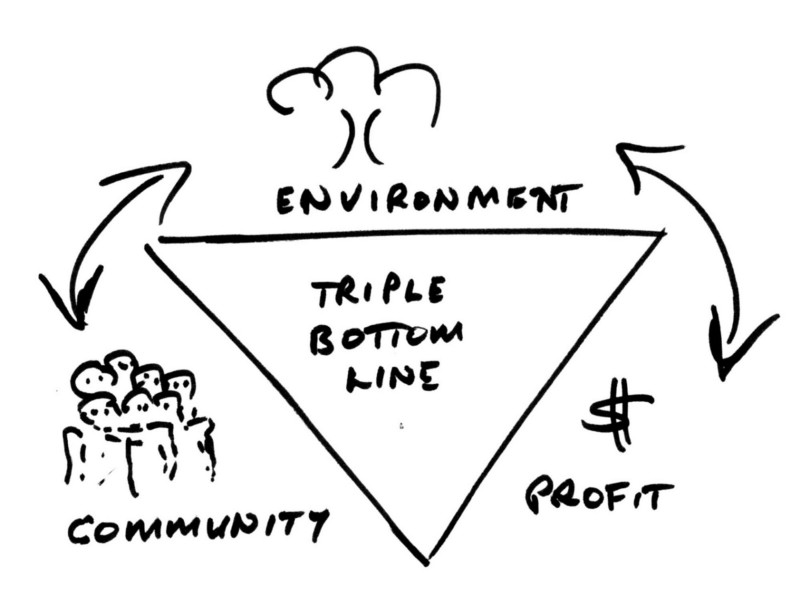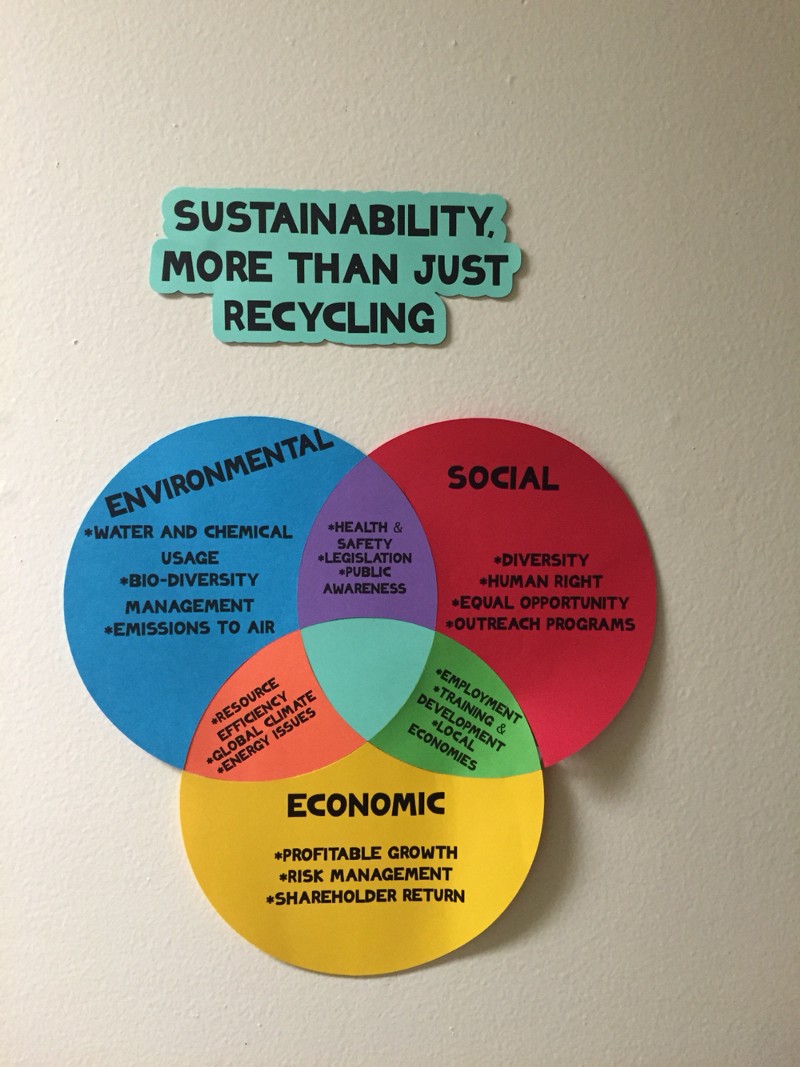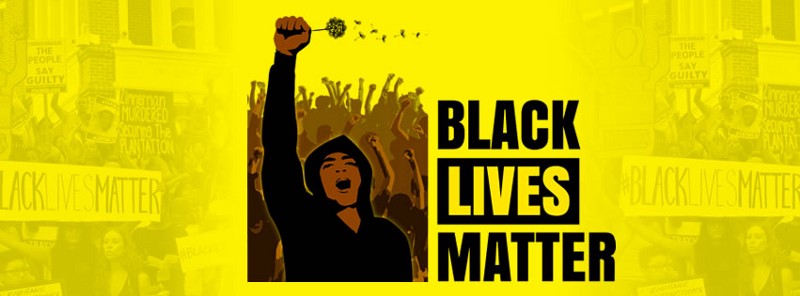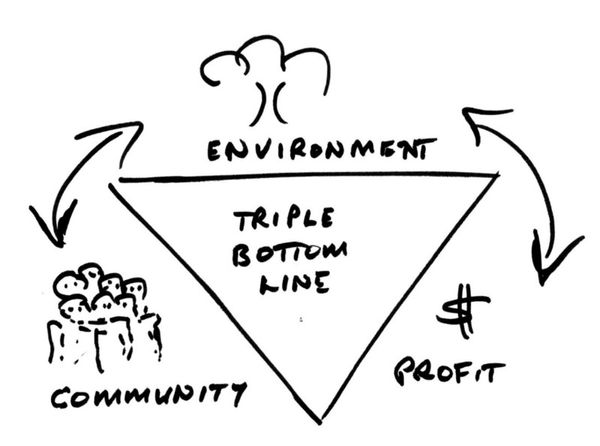
In 1994, John Elkington, co-founder of the business consultancy SustainAbility introduced the term “triple bottom line.” He used it in reference to the business investment principle ESC (Environment, Social and Governance), which became popular in the latter part of the 20th century. ESC advocates held that investors should target companies with a proven track record in environmental and social responsibility. Triple bottom line auditing was devised to measure that track record. The idea of ethical Investing received a powerful impetus when a number of labor unions directed the managers of their substantial pension funds to invest only in “ethical” companies. Those decisions encouraged financial institutions to create ethical investment funds and companies to adopt triple balance sheet auditing.
The Traditional Bottom Line
The traditional bottom line is concerned with the effect of a company’s activities on share value. It does this by costing all company activity and calculating whether the company is making a financial profit or a loss.
The “People” Bottom Line
This is sometimes called the social equity or human capital bottom line and is concerned with a company’s stakeholders other than shareholders. They include employees contractors, customers suppliers, and the wider community in which the business operates. This bottom line is interested in the welfare of these stakeholders. That includes whether employees, contractors and other suppliers receive fair payment for their work and/or goods and whether their working conditions are good. This bottom line is also concerned with the company’s impact, directly and indirectly, on the general public.
A Sustainable Biz — #1: Attracts > Customers #2: Retains > Employees
The Environment Bottom Line
This is also called the planet bottom line or natural capital and is concerned with the size of a company’s ecological footprint and how to keep it as small as possible. This is done by controlling energy consumption, reducing manufacturing waste (especially the toxic kind) and disposing of It safely. In addition, It means managing the life cycle of a company’s products from start to finish. That Includes lessening the environmental Impact from the raw material sourcing stage, to the end-of-life disposal stage. Sometimes aspects of the environment and “people” bottom lines overlap.
The Future-Impact Bottom Line
This is about sustainability and is concerned with predicting how a company’s other three bottom lines will perform in the future. It’s based on the idea that ‘flings may be fine now, but for how long will that last?” By adopting it, a company tries to ensure that its current decisions won’t compromise the well-being of future generations. It’s a strategic long-term planning exercise and, as such, the most imprecise and aspiration of all. Some companies address these non-standard bottom lines as essential parts of their strategic plans and employ personnel specifically to manage and Implement company policy n those areas. Others operate In a more ad-hoc way, occasionally carrying out audits of these other bottom lines. Some companies pay little or no attention to them, focusing solely on the financial profit and loss figures.

Most Western governments realize that encouraging company to pay attention to the three or four bottom lines makes sense from a societal viewpoint. Recent high-profile cases illustrate the dangers of ignoring or paying lip service to them. Some automobile companies installed special software, known as cheat devices, In their diesel vehicles designed to fool government inspectors and potential customers into thinking that the cars had much lower toxic emissions than they actually had. This ruse helped the companies’ sales at the expense of the health of anyone who inhaled those vehicles fumes. Some of these car companies cynically claimed to be strong advocates of corporate social responsibility.

In a traditional financial statement, the bottom line shows only net Income or loss. However, a triple bottom line is a statement of results in three areas profit, people, and the planet. In today’s business world, demonstrating concern for the environment has become a corporate imperative. This is called corporate social responsibility or CSR. A green career that can prove to be rewarding is being a CSR professional. Because this field is so new, there are no specific requirements or qualifications.
Candidates may have transferable skills from related fields such as community relations and environmental management. They also may have related experience volunteering for environmental groups or government planning, implementation, and regulatory agencies.
Socially responsible corporations identify, monitor, and report on activities that have an environmental impact. A CSR professional recommends, oversees, and audits these activities. A number of reporting guidelines and standards have been developed to serve as frameworks for what has become known as social and environmental accounting, auditing, and reporting. Not only does CSR help build a company’s brand and reputation, but it has a positive Influence on society and therefore on the marketplace.
CSR is a form of self-regulation that is built into a company’s business plan. It requires com panies to ensure compliance with legal requirements and ethical standards pertaining to society and to the environment. In many instances an organization’s implementation of CSR goes beyond mere compliance.
Progressive companies implement programs that further social or environmental good regardless of whether they are profitable or required by law. Another aspect of a CSR professional’s job is managing internal communications and consumer marketing campaigns that engage employees and customers in social and environmental initiatives.
The CSR professional works with human resources and corporate communications experts to build awareness of the CSR strategy and gain support. In addition, this professional fosters relationships with stakeholders including shareholders, customers, charities, nonprofit organizations, and government agencies to keep them informed of programs that will have a positive effect on the environment.
Working across a number of departments and seniority levels, the successful CSR professional needs to have good communication skills, time management skills, and organizational efficiency towards performing his job.
Even among the most honorable business leaders, there are some who believe that addressing the alternative bottom lines is counterproductive, espedally if the business is not financially strong in the first place. Many cite the renowned economist Professor Milton Friedman, who in the 1960s and 1970s frequently advised against investing in companies that emphasized the non-standard bottom lines because, he claimed, such companies would be less profitable.
Time has largely proven Professor Friedman wrong. Recent studies show that, on average, companies that pay active attention to corporate social responsibility are more profitable than those that don’t. Dow Jones Sustainability Index (DJSI) research shows that companies using triple bottom line auditing significantly out perform the Dow Jones stock market Index.
Socially responsible companies tend to be more profitable because they attract highly motivated, public spirited, better-qualified employees. Ma result, most of those companies are more productive, and that advantage is reflected In their financial balance sheets. Looking out for the welfare of others, it seems is not just good for the soul but also good for the wallet.
You only rise by lifting other’s up. Help someone today!
Upping the KPIs— Diversity, Race & Millennial-consciousness!
If you keep track of the news, you’ll know that modern consumers have become hyper-sensitive to race issues On social media, activists and housewives alike offer opinions on everything from “Black Lives Matter” protests to the presence of neo-Nazis on the Internet.
Racism is making a comeback (or has never left, depending on whom you listen to). For companies, this represents a unique challenge. Some set their sights on avoiding the conversation altogether, preferring to steer clear of potential missteps. Others are using this time as an opportunity to reach consumers by showing consciousness on the issue. The rise of these so-called “woke” businesses brings to bear many questions, Including: how should companies navigate difficult issues of race In the modem world?

A company’s message will be received according to its organizational context. Companies that have a long history of doing the right thing will get a benefit of the doubt from consumers. This means that those companies that have embraced diversity not only In entry-level hiring, but also In executive hiring will have an easier time making statements on racism In the US. If you want your company’s message to be received the right way, build up your social capital by doing the right thing.
Alignment between product and message
One of the examples of building a brand through race-conscious messaging comes from the NBA’s Steve Kerr and Gregg PoppavIdi. The two coaches have a responsibility to their teams which are both comprised mostly of African-American players. When they speak on race and condemn racism, they’re doing so as men involved in a league that many believe has mostly made its money on the back of black labor. Their relationships with players on the Warriors and Spurs provide these coaches with the credibility needed to speak up on tough topics. Businesses can learn something from this If they’re selling a product to African-American consumers or have otherwise interacted closely with the African-American community, they may have more credibility on these issues.
Avoid piling on In the face of pain and tragedy
One of the biggest mistakes a company can make is to try to score marketing points in the wake of tragedy. While condemning racism and violence Is Important, companies that do so without any context in the wake of a death can be seen as opportunistic. Corporate messaging may be seen as an intrusion in those situations.
Solidarity is the cure
The 3 P's are central: People, Planet & Profit. Corporate Social Responsibility (CSR) must be incorporated into our strategic focus, and products produced in a sustainable way. It's the only way we can maintain the balance between People, Planet & Profit. The complete perversion of any form of an ethical construct, with money sought as if it has more value than life itself. We'll be running a series of remote workshops to help startups recover, with core triple bottom line mantra People, Planet & Profit at its heart. This is not a restart, its a rethink! Please contact us if you'd like join in.
Taking stock of the India's failure to deliver a recovery for working people after financial crisis, we offer a progressive vision for a radically different India where people & planet come before profit and greed. We believe that good business balances profit with people, planet and purpose. By reinforcing a sense of sustainability ownership, it benefits people, planet and profit.
COVID-19 is changing the business landscape — and possibly forever altering how we think about people, planet and profit, and sustainability, social enterprise and impact investing. There has to be a better solution to this global pandemic. Bail out the everyday citizens and let banks and businesses go. Time to reset everything and make business work properly, to benefit the 3Ps.
It's about people
Let's take a quiz! List the top profitable non planet destroying, war-making, inequality-creating F500 companies. Corporations should stay in their lane, making people & planet as important as profit, capitalism should have a conscience & operate ethically. Those changes should not be voluntary; they should be demanded.
The struggles to decolonise & decarbonise are tied together: Both resist the capitalist compulsion to endlessly exploit labour & nature. Corporations have to balance people, planet & profit through our business, & we meet the highest standards of verified social & environmental performance, transparency, & accountability. Entrepreneurship is hinged on sustainability it not only creates impactful jobs, it likewise builds a healthy planet & advances economic growth.
Brave, risk-taking behavior can help
Some corporate CEOs have stopped working with the White House in order to show their dissatisfaction with the current state of race relations in America. These CEOs have been lauded for their efforts. Mostly they are benefiting from the perception that they took a risk and put themselves on the line for something they believed in. In a world where empty talk Is the norm, the willingness to put some skin In the game can help a company stand out and establish itself as legitimate.

Messaging added by people of color
Modern race discourse focuses in some ways on not only what is being said, but also who is saying it given that much of the discourse has been led by white people for decades, many appreciate those companies that amplify the voices of people of color. As a business that’s trying to stay relevant during an especially difficult time for messaging having people of color guide the marketing is important. Not only will this signal to the public that the company is serious about getting things right, but it will also allow companies to tap into the current feelings of minority communities around the country.
Backing up words with dollars
Former basketball star Michael Jordan, now the owner of the Charlotte Hornets, donated millions of dollars to causes related to racism recently. This demonstration of corporate social responsibility was more meaningful than a simple tweet or a few pointed words. He gained positive attention for himself and his team’s brand because he put money behind those words. Many who work in the field of race relations will tell you that organizations need more than lust vocal support today. When advocacy and lobbying are two of the primary costs of social change, impactful non-profits need money. The consuming public will take notice when cash is involved. it’s a way of raising the ante with your corporate social responsibility.
 Need help with Digital Marketing? Try KEYSOME
Need help with Digital Marketing? Try KEYSOME
. 🎉
